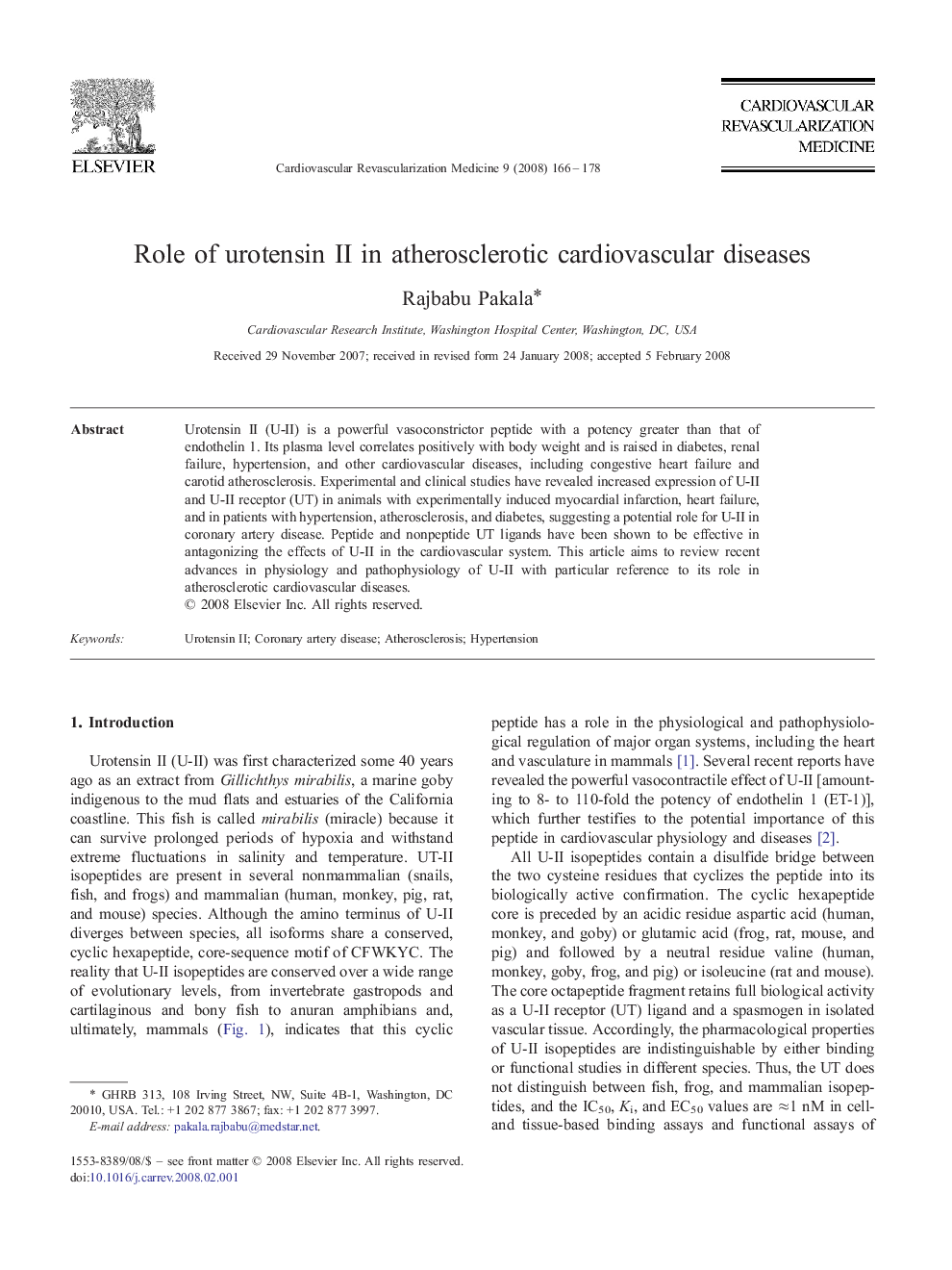| Article ID | Journal | Published Year | Pages | File Type |
|---|---|---|---|---|
| 2837831 | Cardiovascular Revascularization Medicine | 2008 | 13 Pages |
Urotensin II (U-II) is a powerful vasoconstrictor peptide with a potency greater than that of endothelin 1. Its plasma level correlates positively with body weight and is raised in diabetes, renal failure, hypertension, and other cardiovascular diseases, including congestive heart failure and carotid atherosclerosis. Experimental and clinical studies have revealed increased expression of U-II and U-II receptor (UT) in animals with experimentally induced myocardial infarction, heart failure, and in patients with hypertension, atherosclerosis, and diabetes, suggesting a potential role for U-II in coronary artery disease. Peptide and nonpeptide UT ligands have been shown to be effective in antagonizing the effects of U-II in the cardiovascular system. This article aims to review recent advances in physiology and pathophysiology of U-II with particular reference to its role in atherosclerotic cardiovascular diseases.
